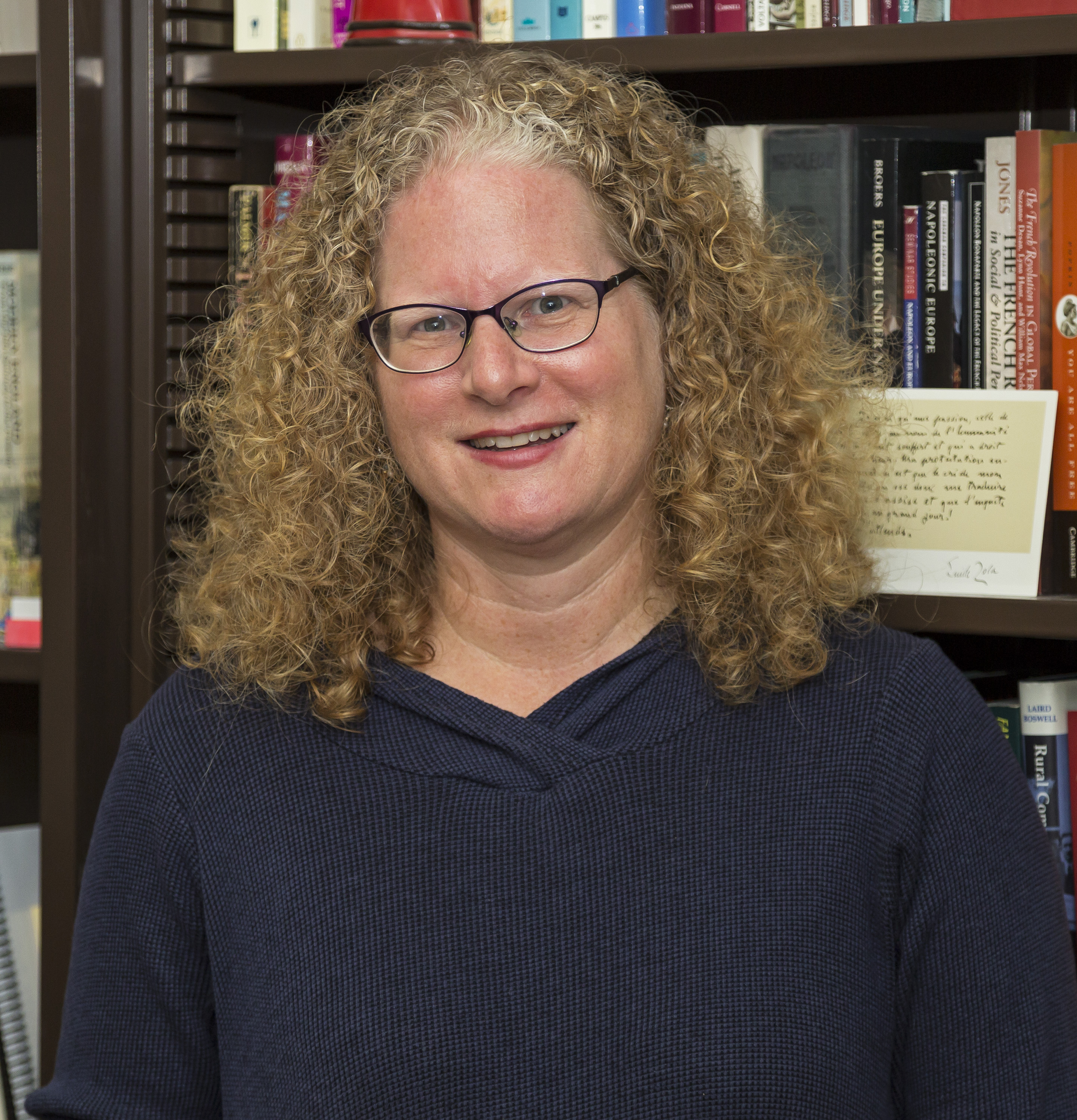When global leaders gathered at the Paris Peace Conference following World War I, women were excluded from the negotiating table. Not only were they shunned from international politics in 1919, but in most nations they weren’t even allowed to vote.
 History Professor Mona Siegel (Sacramento State/Craig Koscho)
History Professor Mona Siegel (Sacramento State/Craig Koscho)But that didn’t keep them from making their voices heard at a time that proved a turning point for women’s rights. Sacramento State History Professor Mona Siegel will examine that pivotal year in a new book. More than Half of Humanity: The Women Who Shaped the Peace of 1919 will look at the women who gathered not only in Paris but also in cities such as Zurich and Cairo.
Siegel recently received a $50,400 grant from the National Endowment for the Humanities to complete the book. She used a previous grant to research the subject – which took nearly two years. The new grant will allow her to write it all up over the next two semesters.
“I’m somewhat terrified,” Siegel says. “It feels very daunting to think of writing an entire book in a year.”
Her interest in the subject began when Siegel was an undergraduate studying International Affairs at the University of Colorado, Boulder. Her friend convinced her to take a women’s studies course, and Siegel chose Women’s Peace Activism. For various reasons, the archives of the conference that was held in Zurich are located at the Boulder campus, and Siegel began pulling out dusty old boxes and making her way through documents handwritten in French.
“For the first time I realized there were women who tried to change the world before my generation,” Siegel says. “I wanted to spend many years with these women; learning about what had motivated them, what they saw as their successes and how they explained their failures.”
They were fighting not just for the vote, but for more involvement and freedom in many areas including labor rights, equal pay for equal work, and maternity protections. Those at the Zurich conference also drafted a feminist-pacifist agenda and became the first international organization to condemn the Versailles Treaty as an unjust peace. And in some areas, such as the Middle East, the efforts of women focused on gaining national sovereignty from imperial control – and individual sovereignty for women as well as men.
Given that many of these problems persist, it might seem much of the fight was in vain. But Siegel points out there were notable successes.
One of the peace accord’s most notable accomplishments was the creation of the League of Nations, precursor to the United Nations. Its charter specifically stated that all positions – elected and appointed – would be open equally to men and women.
“That was a fairly remarkable achievement in 1919, because many of these women couldn’t serve in office or vote in their own countries, and yet they had access to the international political arena,” Siegel says.
Another achievement was the input women had in the creation of the International Labor Organization, which declared that women could serve as reps and technical experts on any issue involving women’s or children’s working rights.
Siegel’s research took her to 14 archives, located in such diverse locales as Paris, London, and Brussels. Now she’s ready to stay close to home, bringing it all together in one volume.
“I find it particularly interesting that here we are, 100 years later, with so many issues surrounding gender equality still dominating public conversation,” Siegel says. “The issues the book will present are still very relevant in the world we live in today.”
For more information, contact Professor Siegel at msiegel@csus.edu. For media assistance, call Sacramento State’s Office of University Communications at (916) 278-6156. – Craig Koscho
